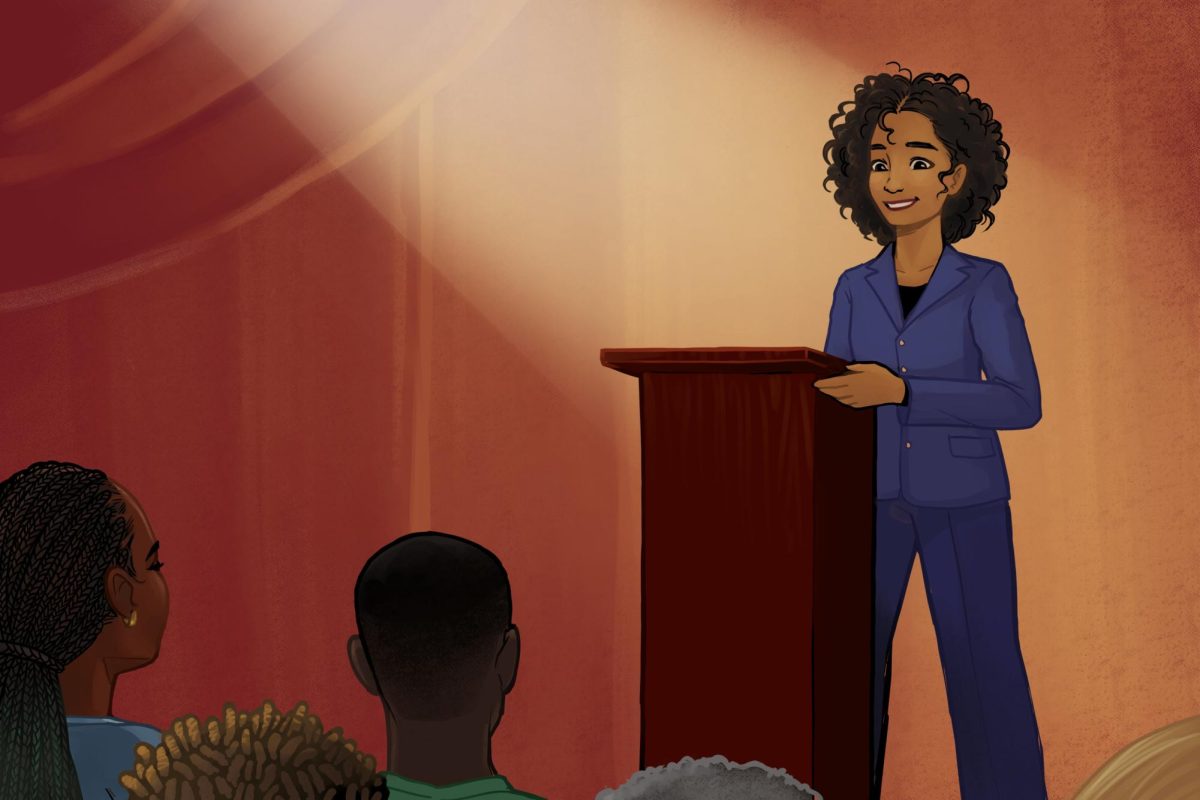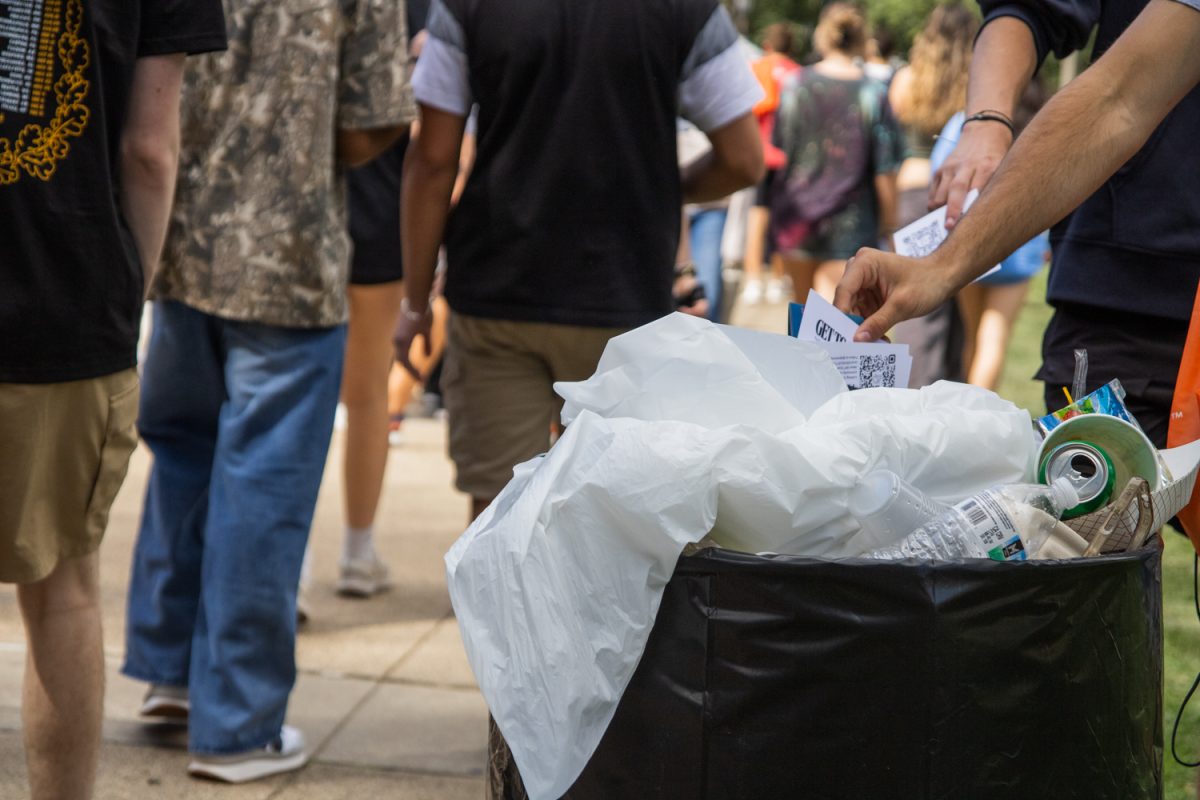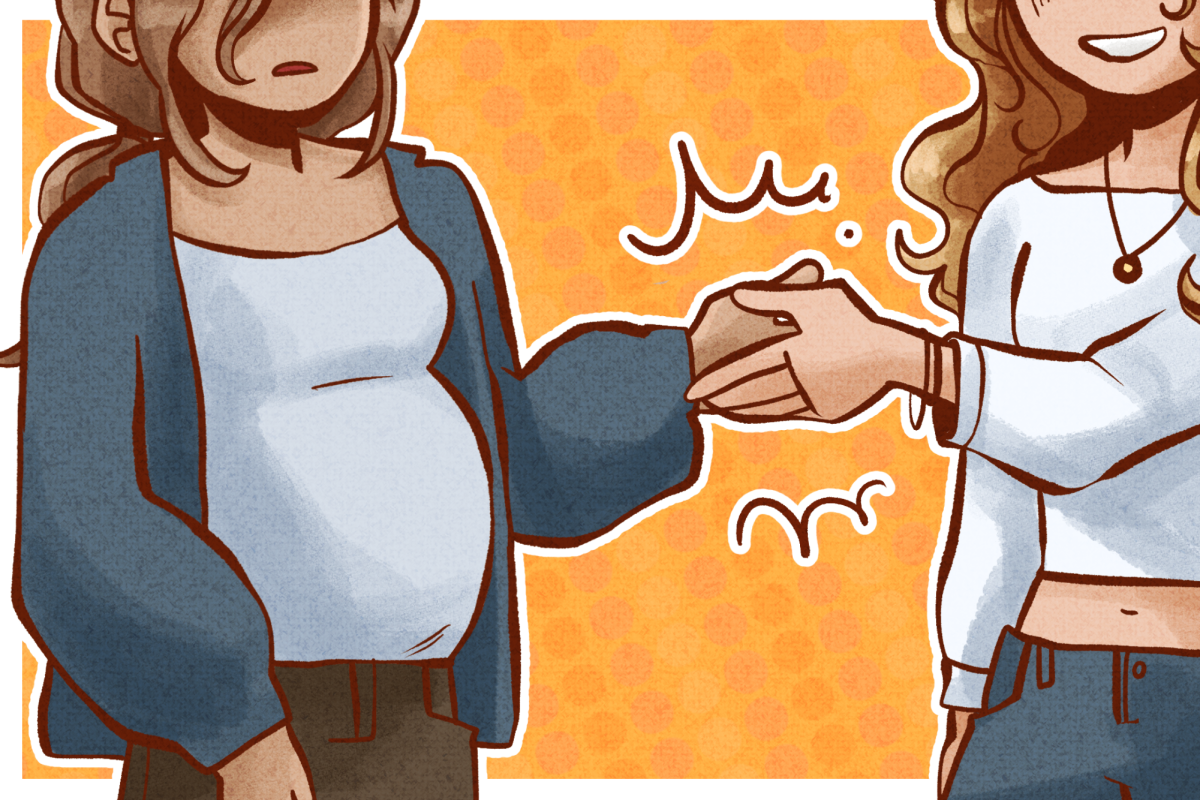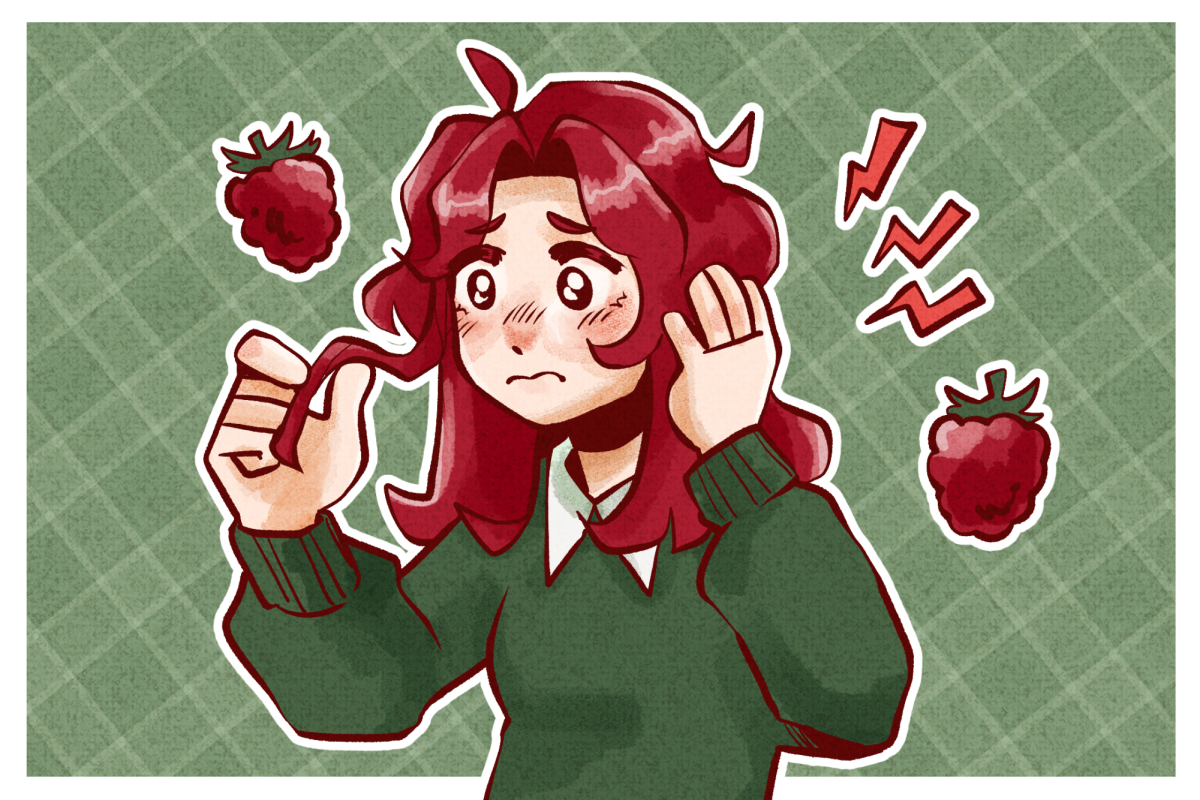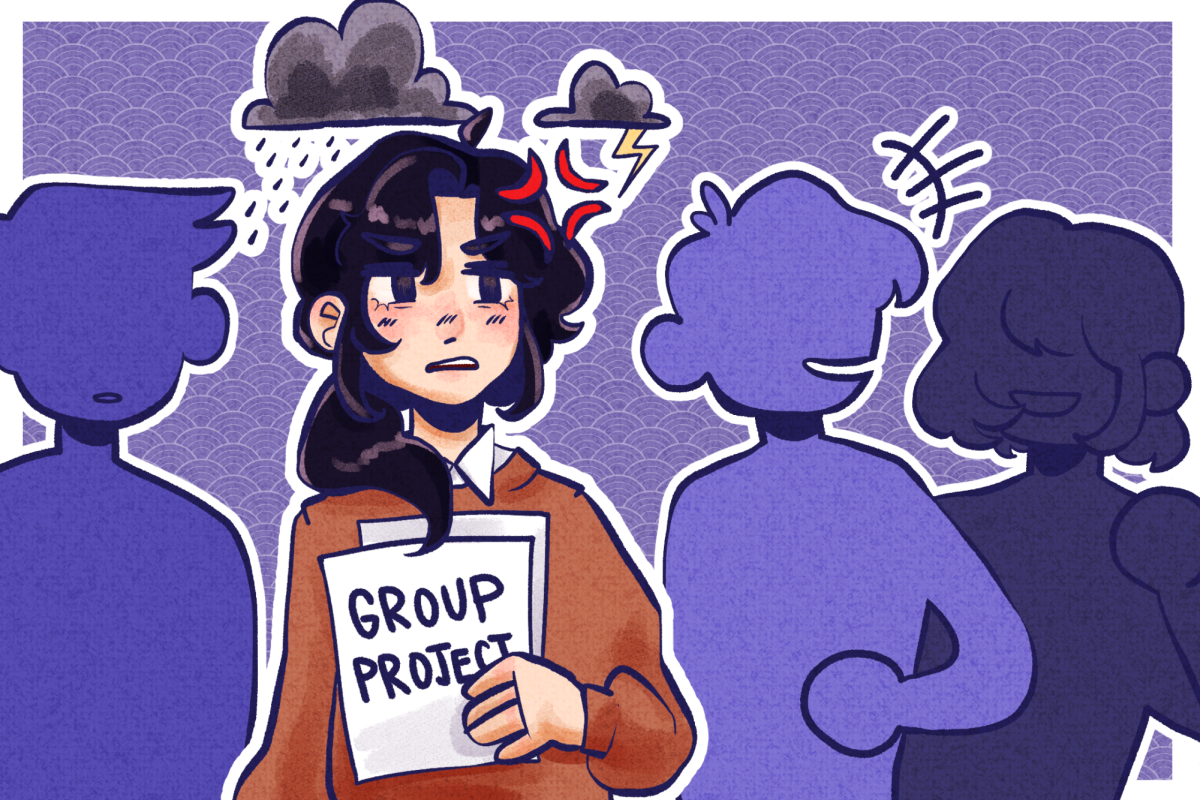It was around midnight, the neighborhood was cloaked in darkness, and the only light came from the faint glow of street lamps and the Walgreens across from my house.
Suddenly, the silence was shattered by a deafening crash — a brick hurled through the air. Another brick followed, while another girl watched from a nearby car. My mind went blank as I saw a white woman, her face twisted with rage, attempting to assault me like she promised she would.
In that moment, one question echoed in my mind: Can my words ever truly shield me from such visceral, unrestrained hate?
I am a Black journalist. Apart from my undeniable responsibilities as a reporter, I seek to amplify Black voices and issues, stand for advocacy and activism, educate and raise awareness and promote empathy and compassion. But for years, I dedicated myself to writing with the hope of “fixing racism.” My articles aimed at educating white readers, hoping to change their minds and, in turn, dismantle systemic racism.
When I first started, my intention was clear: I wanted to educate white people about racism, believing that if they understood the depth and breadth of the issue, they would be moved to change. I filled my articles with statistics, personal stories and historical context, all meticulously crafted to appeal to white readers’ sense of justice and empathy. I thought that if they could see the world through my eyes, change would surely follow.
Get The Daily Illini in your inbox!
But in the aftermath of this specific attack, I began to reflect on my work and its purpose. I let this young woman call me a c–n and the n-word, explicitly say she was going to hate crime me, and come to my home more than once — and I couldn’t do anything about it. All I had to defend myself were words. My writing could not protect me in the moments of immediate physical threat. No amount of eloquence or persuasive power could stop the bricks or slurs.
I considered stopping writing altogether. I felt powerless against her. My writing raises awareness about racism and injustice, educating readers and sparking important conversations. However, words alone cannot protect against physical threats or immediate danger. Because as a Black woman, I am expected to handle these situations with equal, if not excessive, retaliation.
This world expects us — Black people — to physically fight everyone off and show that we’re “about that action.” We’re expected to “stand on business” and “handle dat.” We can’t alert the authorities or else we’re “scary.”
Instead, I need whoever is reading this to understand, this perception perpetuates a culture that leaves us vulnerable and unsupported, increasing the risk of serious harm or even death. Nobody else is being held up to that standard, a standard that claims we don’t have access to an entity that was built to protect everyone else.
When Black women are discouraged from seeking help, they are more likely to remain in dangerous situations or face retaliation without support. This mindset reinforces harmful stereotypes that Black women must be self-reliant to the point of self-determination, perpetuating the myth of the “strong Black woman” who does not need help. In a reality where safety is paramount, the ability to seek protection and support should be a universal right.
There is little to no stigma attached to white people seeking police intervention. They are not labeled as weak or cowardly for prioritizing their safety. But then we turn around and create these rules for ourselves that perpetuate cycles of violence within our own community. It’s crucial to foster a culture where seeking help is seen as a wise and necessary action, not a sign of weakness. It’s only fair to ourselves.
Truth is, I placed the burden of solving racism on myself, believing that if I could just find the right words, I could enlighten those who perpetuated or were complicit in systemic racism. But this approach ignores the fact that the responsibility to end racism lies with those who uphold and benefit from it, not those who suffer under its weight.
The hate I endured was a painful wake-up call, but it also led to a profound shift in my understanding of my role as a journalist. My words were meant to empower, uplift and validate my own community, not to seek validation or understanding from those outside it. By refocusing my efforts on empowering my community and taking tangible actions for protection and solidarity, only then can I better serve the fight against racism. In that moment, the fear and trauma I experienced highlighted the gap between the theoretical power of my writing and the practical need for safety and security.
Expect a dramatic shift in what I choose to focus on or how I frame it. My articles will now focus on empowering my Black community, providing validation and support rather than seeking to change the minds of those who hate. I write to celebrate our culture, highlight our achievements and address the issues that matter most to us. I aim to provide practical advice and resources for dealing with racism and threats, emphasizing the importance of self-defense, community solidarity and legal action.
In acknowledging this shift, I will no longer address non-Black people to convince them on what to do. That isn’t my responsibility. Instead, I can only speak directly to my own community.
I never want another Black woman to feel as though she isn’t safe with no one to protect her. Every Black woman should know she has the right to seek help and protect herself. Therefore, we must break free from internalized stereotypes that hold us back and redefine “strength” to include the ability to seek support, prioritize personal safety and take collective action. True strength comes from knowing when to stand together and when to ask for help.
Initially, I planned to publish the first draft of this article, which heavily focused on the woman who assaulted me, giving her more attention than necessary. However, by taking my time and revisiting my work, I was able to revise it. Through days of deep introspection, I learned a valuable lesson: Spend less time hating others and just find it in your heart to forgive.
Throughout this ordeal, I’ve experienced a range of emotions, from intense anger to profound sadness. But in the midst of my fury, a thought kept surfacing: I wish I could show this woman kindness, or that someone else could. Because maybe nobody ever has. And for that reason, my heart has softened.
By choosing to forgive, I’m not condoning her actions or dismissing the pain she caused. Instead, I’m acknowledging that holding onto this pain only perpetuates a cycle of suffering.
Releasing it is a way to reclaim my strength and move forward — because hating someone is extremely draining. Forgiveness is not just an act of kindness toward her; it’s also a way to find peace within myself.
I understand that she is a troubled girl, and despite everything, I feel for her. Sometimes people act out on their own pain and confusion, and I can’t help but wonder if that’s part of her story. Maybe she’s never known what it feels like to be treated with compassion. I wish her the best in her own journey, and I hope that someday, she too can find the strength to heal and perhaps even forgive herself.
By continuing to be full of hate and resentment, I’m only proving to the world what it already thinks of Black women. Being a Black woman comes with its unique set of challenges, and it’s easy to fall into the trap of anger and bitterness when faced with injustice. But I want to show that we are so much more than what society often labels us as. We are resilient, loving and capable of immense grace.
So, I will continue to write with passion and purpose, knowing that someone out there is reading. In a world that often tries to silence Black voices, I refuse to be muted. I write for my community, for our shared history and for our future. I write to affirm our existence. Every article, every story and every word has the potential to touch a heart, to spark a conversation and to inspire action. And even if I reach just one person, it is worth it.
If you learn anything from this article, I hope you learn that Black women are capable of anything and everything. I’m capable of being angry and resentful, but I’m also capable of showing mercy and compassion. We are not defined by the stereotypes imposed upon us — our capacity for forgiveness and love is boundless — and our determination to fight for justice and equality is unstoppable.
Never again will I let someone make me feel how she made me feel. And I hope you don’t either. We must refuse to internalize the hatred and violence directed toward us and instead reclaim our power and dignity. By standing firm in our identity and seeking the support we deserve, we can break the cycles of fear and oppression.
Jasmine is a sophomore in Media.



